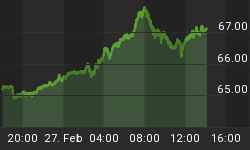Slack Inc.’s IPO is nigh, and eager investors are already eyeing another potentially juicy payday. The popular New Jersey-based workplace communication platform has filed confidential paperwork to go public in the current year--but don’t expect this one to be much of an IPO.
Slack, an acronym for "Searchable Log of All Conversation and Knowledge," may not have killed off email as the founders promised but hopes to make a killing for existing investors. The company plans to forego a traditional IPO and instead borrow a leaf from music streaming giant Spotify Inc.’s (NYSE:SPOT) playbook and list its shares directly in a Direct Public Offering, or DPO.
Unusual listing
Generally speaking, companies that want to do an IPO enlist the services of one or multiple underwriters to facilitate things like dealing with regulatory issues, determining the IPO price, selling shares to initial investors and so on. With a direct listing, however, a company’s existing shareholders sell their shares directly to the public without the company trying to raise extra capital by selling secondary shares to the market.
At first glance, taking this route might seem counterintuitive given that startups and young companies like Slack are growth machines that tend to prioritize growing customer bases and revenue over anything else. Most startups prefer traditional IPOs because they provide a hefty injection of extra cash that they can use to expand their operations. But in some cases, young companies with powerful brands and models find that they simply don’t need this extra cash. Related: The Key Reasons Gold Could Be Poised For A Breakout
Such is Slack’s case, given its already enviable asset base including plenty of cash (undisclosed amount); 8 million active users, 3 million paying users and a $7.1 billion valuation, according to private equity research firm, Pitchbook.
A DPO is an attractive proposition for Slack for several reasons, including lower listing costs and no lock-up period. Sure, the company will work with bankers like Morgan Stanley, Goldman Sachs and Allen & Co. to facilitate the DPO. The costs, however, will be significantly lower compared to what a typical IPO demands.
Having been around for a decade, Slack has become a well-established brand and managed to overtake apps like Skype, HipChat and Google Hangouts so there’s less need for underwriters to market the shares.
Further, existing shareholders will be able to sell their shares immediately with no lock-up period. Lock-up periods typically last 90-180 days and are mainly designed to discourage insiders from dumping their shares for a quick buck. Given that Slack is seeking a $10 billion valuation for its IPO (or roughly 30 percent premium), some existing investors will no doubt want to cash out as quickly as possible—which is a good thing for the rest of us.
Lessons from Spotify
A direct listing might sound like a convenient route for a cash-rich company like Slack to go public. For outsiders looking to purchase the shares though, DPOs come with quite a number of challenges as we can learn from Spotify’s 2018 listing. As you might imagine with no secondary shares available, poor liquidity tends to be the most obvious problem with DPOs.
Related: U.S. Stocks See Strongest January In Decades
In Spotify’s case, far fewer-than-expected existing shareholders sold their shares at the DPO thus contributing to an initial shortage that drove prices up before tanking. SPOT stock opened at $165.90 at around 12.40 pm New York Time before jumping to an intra-day high of $169 a couple of minutes later with a mere 5.6 percent of the available shares to trade changing hands. SPOT managed to make strong gains to hit an all-time high of nearly $200 in July before crashing spectacularly.

(Click to enlarge)
Source: CNN Money
The big risk with popular brands like Spotify and Slack is that they can become victims of their own success.
Demand can far outstrip supply which in turn can artificially drive prices up. But eventually the honeymoon period is over and fundamentals kick in. Kicking the tires a little before buying might, therefore, be a good strategy.
By Alex Kimani for Safehaven.com
















